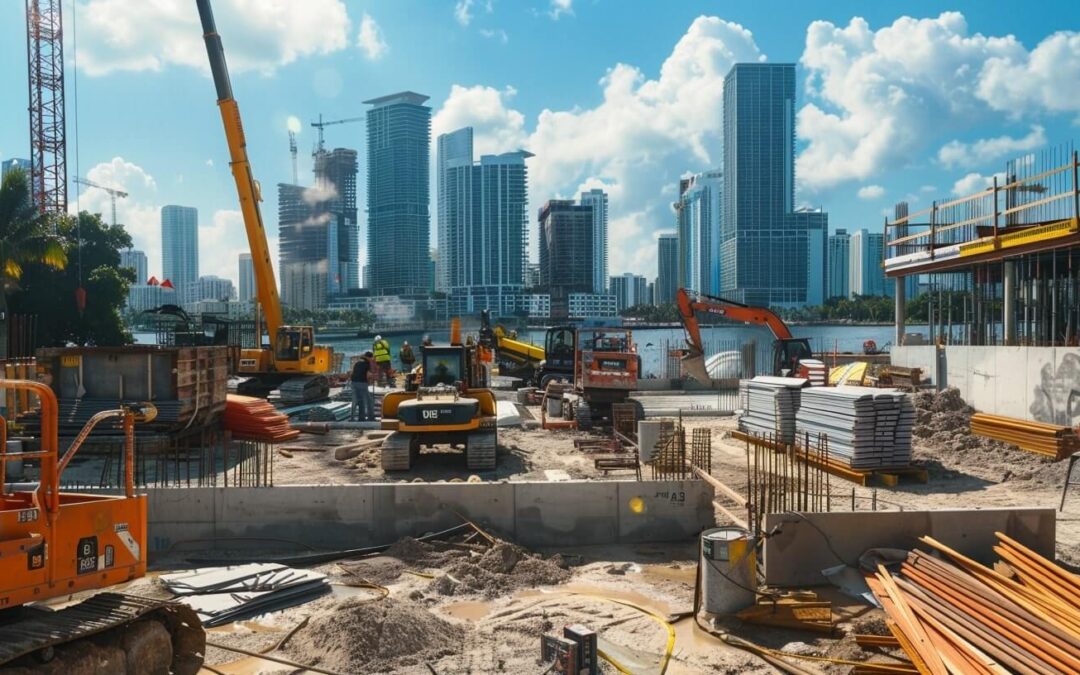When you consider the complexities of construction projects in Miami, the role of a general contractor in managing subcontractors becomes apparent. You’ll find that effective communication and coordination are essential to navigate the unique challenges of the local environment, from unpredictable weather to shifting regulations. By overseeing subcontractor schedules and workflows, a general contractor not only enhances efficiency but also mitigates potential conflicts. However, understanding how these dynamics play out in real-world scenarios raises critical questions about best practices and strategies. What might those look like in the context of Miami’s vibrant construction landscape?
Overview of General Contractors
When you’re embarking on a construction project, understanding the role of general contractors is crucial.
These professionals are your main point of contact throughout the project, coordinating all aspects from start to finish. They manage schedules, budgets, and ensure compliance with local regulations.
General contractors also hire and supervise subcontractors, ensuring that each specialist delivers quality work on time. By handling the logistics and problem-solving, they allow you to focus on your vision rather than getting bogged down in details.
Their experience helps navigate potential challenges, making the construction process smoother.
Importance of Subcontractor Management
Effective subcontractor management is vital for the success of any construction project. When you manage your subcontractors well, you create a smoother workflow, reduce delays, and enhance overall quality. It helps ensure that everyone understands their roles and responsibilities, which minimizes misunderstandings.
By maintaining clear communication with your subcontractors, you can address issues promptly and keep the project on track. Additionally, effective management aids in monitoring performance and compliance with safety standards.
You’ll also foster a collaborative environment, encouraging subcontractors to bring their expertise to the table. Ultimately, when you prioritize subcontractor management, you’re not just ensuring a successful project; you’re also building strong relationships that can lead to future opportunities.
Key Responsibilities of General Contractors
Managing a construction project involves several key responsibilities for general contractors.
First, you need to oversee the entire project from start to finish, ensuring that timelines and budgets are met. You’ll coordinate with subcontractors, assigning tasks and monitoring their progress to maintain quality standards.
Communication is crucial, so you must keep all stakeholders informed about project developments. Additionally, you’ll handle permits and inspections, ensuring compliance with local regulations.
Safety on the job site is also your responsibility, as you must enforce safety protocols to protect workers.
Lastly, you’re accountable for resolving any conflicts that arise, whether between subcontractors or with clients, making sure the project runs smoothly and efficiently.
Challenges in Miami Construction
Construction projects in Miami come with their own unique set of challenges that general contractors must navigate. The unpredictable weather can delay timelines, making scheduling tricky.
You’ve got to consider local regulations and zoning laws, which can change frequently and impact your plans. Additionally, the competitive market often leads to labor shortages, complicating the hiring of skilled subcontractors when you need them most.
Navigating supply chain issues can also be a headache, as materials may be delayed or become unexpectedly costly. Lastly, you’ll face the challenge of maintaining effective communication among diverse teams, ensuring everyone stays on the same page.
All these factors require your attention and adaptability to keep projects on track and within budget.
Best Practices for Effective Coordination
Successful coordination in Miami’s construction projects relies on a few key practices that can make a significant difference.
First, establish clear communication channels with your subcontractors. Regular meetings help everyone stay on the same page and address issues promptly.
Next, use project management software to track progress and deadlines, ensuring transparency and accountability.
It’s also crucial to define roles and responsibilities upfront, so each subcontractor knows their tasks and expectations.
Be proactive in resolving conflicts and encourage a collaborative environment where subcontractors feel comfortable sharing concerns.
Lastly, maintain a flexible mindset; adjustments may be necessary as projects evolve.
Frequently Asked Questions
How Do General Contractors Select Their Subcontractors in Miami?
When selecting subcontractors in Miami, you evaluate their experience, reliability, and past work quality.
You also check references, assess their financial stability, and ensure they understand project specifications to maintain efficiency and meet deadlines.
What Qualifications Should Subcontractors Have for Miami Projects?
For Miami projects, subcontractors should have relevant licenses, experience in local building codes, a solid portfolio, insurance coverage, and strong communication skills.
You’ll want to ensure they’re reliable and can meet project deadlines effectively.
How Do Payment Agreements Typically Work With Subcontractors?
When you work with subcontractors, payment agreements usually involve upfront deposits, milestone payments, and final compensation upon project completion.
It’s essential to clearly outline terms in contracts to avoid misunderstandings and ensure timely payments.
What Legal Obligations Do Subcontractors Have Under Florida Law?
Under Florida law, subcontractors must adhere to licensing requirements, maintain proper insurance, and comply with safety regulations.
They’re also obligated to complete work per contract specifications and ensure timely project completion to avoid legal disputes.
How Can Clients Verify a Subcontractor’s Reputation or Reliability?
To verify a subcontractor’s reputation, check online reviews, ask for references, and review their past projects.
You can also consult local building associations or licensing boards to ensure they’re credible and reliable in the industry.
Conclusion
In conclusion, as a general contractor in Miami, your role in managing subcontractors is vital for project success. By prioritizing clear communication and collaboration, you can navigate the unique challenges of the local environment while ensuring compliance and safety. Embracing best practices in coordination not only enhances efficiency but also helps you deliver quality work on time and within budget. Remember, your leadership can make all the difference in achieving a successful construction project.

